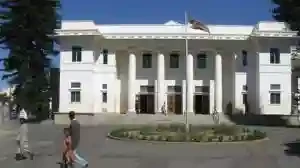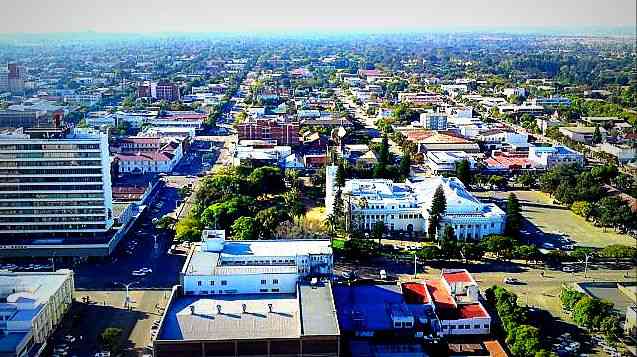GONE are the days when one would lead using control; we now must lead with context. We lead people who have access to information and who might know better than us.
Events seem to be moving at breakneck pace the world over.
One is left with more questions than answers. How do I lead my company? How do I even lead my family? How do I grapple with change? How do I fit into this so-called “new normal”, which is not normal at all?
Views have become so divergent. A good promise by one might seem too overly and overtly charismatic. One’s silence might be taken for despotism or autocracy.
Re-modelling
Rwanda is one country that has, of late, seen some positive progress. Its infrastructure and adoption of technology has made it to catch up with times and trends.
Keep Reading
- MUCKRAKER: The grapes are sour anyway
- Govt curbs human trafficking
- Rwanda MPs oppose contraceptives for 15 year olds
- Don’t meddle in Rwanda politics, Zim teachers warned
Someone saw the world differently even after the deadly genocide.
The World Economic Forum said Rwanda is “one of the fastest growing economies in central Africa, Rwanda notched up GDP [growth domestic product] growth of around 8% per year between 2001 and 2014 ... Rwanda increased significantly as the country began rebuilding itself after the genocide.”
This is how it has re-modelled itself. As young as I might be, I have seen Rwanda revolve in my own sight. This shows that things are possible.
Individualism might not work
Individualism and greed could be contributing factors. If one owns mansions and millions in the bank, they feel they have now arrived and do not even need to worry about what someone next door is doing.
Lack of generational thinking
The world did not start here and I do not think it will end here with us either.
So, we should think of the next human beings to occupy our space. So we have to create a better place for them to inherit.
Don’t be stuck in the past
The reason causing not only stagnation, but retrogression are people stuck in the past.
The late Austrian American management consultant, educator and author Peter F Drucker in his book Leader to Leader (1999: 115) noted: “The present people in organisations are still stuck in the 19th century model of the organisation.”
At times, we are stuck with our past successes or mourning at our grave of failures.
Systems thinking
This is one important leadership trait. At this point, the leaders’ creative ability and agility integrates all parts of an organisation. It brings all the disciplines together.
As individuals, we are just but like a maize morsel. Together, like maize, we add up to make silos.
Once said the late American novelist, short story writer and poet Herman Melville: “We cannot live for ourselves alone. Our lives are connected by a thousand invisible threads, and along these sympathetic fibres, our actions run as causes and return to us as results.”
The V-Formation
Have you seen the V-formation made by migratory birds? The Word For Today (Issue 4/2008, Oct/ Nov/ Dec 2008, Radio Pulpit, pg 4) said: “Birds know that to complete the long trip of migration, they have to fly united. Scientists tell us that flying in formation increases the bird’s flight range by 71%. Airwaves created each time a bird flaps its wings provide an uplift for the next one in formation, supporting it, decreasing its workload and conserving its energy. A solo bird could never complete the trip, but in formation, the youngest, the oldest and even the weakest get there. In other words, they do collectively what they could never do alone.”
Now, it is up to the leaders to make the V-formation work. A great leader understands that great goals cannot be accomplished by one person, but by a good team.
A team is made up of different individuals and the role of the leader is to glue together all the individual people’s potentials towards one great goal-winning.
Like part of a puzzle, everyone should fit squarely where they perform their best to necessitate a smooth flow and for the benefit of the whole entity.
The ultimate role of a leader is to creatively bring all the cogs together.
Re-engineering the economy
We need to re-think rigid industrial systems if we are to see change. What worked yesterday might not work today. As we see the exponential growth of artificial intelligence, we need to re-engineer our thinking.
We need to think about automation, robots and idea generation.
Executive coach, educator and author Jeremy Kourdi (2015: 218) in the book The Big 100 says: “If companies are to succeed and achieve more during times of volatility, opportunity and change, they need to be learning organisations where everyone and every function are encouraged and supported to continuously adapt and improve”
Parting point
I wonder if many companies really understand why they employ people. They are not only employed to perform a particular function, but to bring ideas.
The danger of employing someone to perform a specific duty is that when a new thing comes, their performance might not be needed.
Worse still, the future is seriously becoming automated. What you used to do with your own hands might be replaced by a robot.
So allow people to use their minds to develop your company. Allow them to make mistakes as they flex their mental muscles. Challenge them to generate more ideas and concepts.





